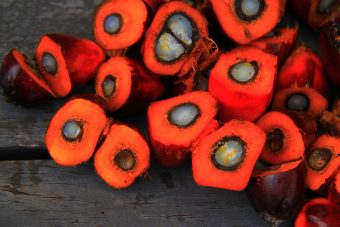European palm oil importers are unlikely to be able to ensure that the products they sell are “deforestation-free” by the self-imposed goal of 2020, according to analysis by the Palm Oil Transparency Coalition.

While about 98% of the palm oil imported into Europe by the survey respondents can be traced to the mill it came from, thanks to efforts by producers, only about a third can be traced to the plantation it came from, the report said. That makes it hard to determine if third-party suppliers had destroyed forests to grow palm trees or if they used child or forced labor at some point in the supply chain.
Few companies that participated in the study said that audits or reviews were taking place in their supply chains beyond those carried out by the Roundtable on Sustainable Palm Oil, an industry group that includes producers and buyers and oversees the sustainability of the product. Only about 19% of global palm oil is certified sustainable by these standards.
Another field for improvement is exploitation. While ethical supply chain plans are increasing, few companies have launched programs outside of small-scale pilots, the study found.
“Multiple importers noted that their experiences with personal care and household product manufacturers were different to those in the food industry, where sustainable palm oil is a higher priority,” the report said.
The Palm Oil Transparency Coalition members include retailers such as Monprix owner Casino Guichard Perrachon SA, Marks & Spencer Group Plc, J Sainsbury Plc and Tesco Plc. The results derive from a survey of the top ten importers that supply palm oil to the members of this industry group.
Author: Irene Garcia Perez
Source: Bloomberg
